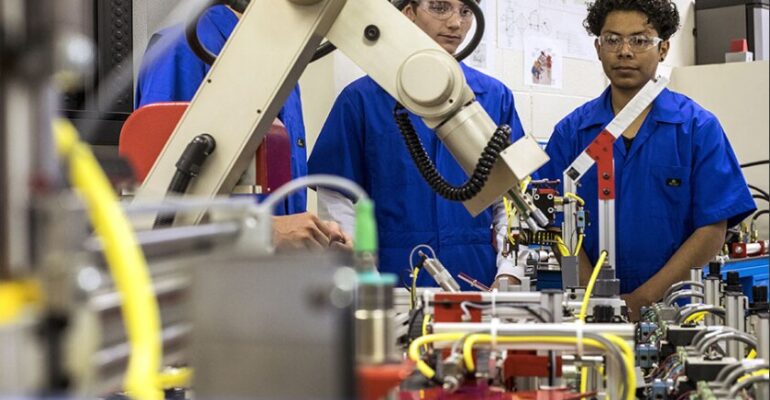The value of career/technical education
August 17, 2025 2025-08-17 6:17The value of career/technical education
The value of career/technical education
A lot of what we read about today concerns educating our young with guidance toward becoming productive, happy adults. Of course, ideas and opinions are as numerous as the population. Education is a moving target for trends and movements like new math, open classrooms, online education, magnet schools or home schooling. Higher education past twelfth grade is not a new idea. Universities and colleges have existed since the colonies; later, community and junior colleges helped serve the needs of lower income and part-time students. Meanwhile, college tuition has skyrocketed. With college offerings expanding widely in the 70’s and 80’s, the need for specific employment skills fell on the concept of vocational and technical education.
Legislation that began during the Kennedy presidency and was implemented by President Johnson established schools that taught objective-based career education in high school. The schools were (are) equipped with state-of-the-art equipment for the field, and taught by certified experts.
The first few years of vocational high schools, either separate units or combined with high school buildings, were fraught with a lot of misunderstanding. Some parents and even some school boards pictured vocational education as a makeover of industrial and practical arts, which had been for years part of the general high school curriculum. Others viewed vocational education as an option for troubled or disruptive students.
Both were and are misconceptions.
The goal of vo-tech, now referred to as career/technical education, is to train high school students for meaningful employment at entry level.
This is a goal nearly identical to post secondary trade school training.
Program offerings reflect available employment in the area. Courses are available to all students. While there may be “sampling” programs for younger students, program content is dedicated and intense. Instructors are certified by experience in the trade and by the state. An active committee of professional advisors meets regularly to make recommendations for updates and technology changes
Selecting a career training program does not preclude a student from applying for college or a post secondary trade school. Academic subjects and core requirements are met at the home school district in most cases.







